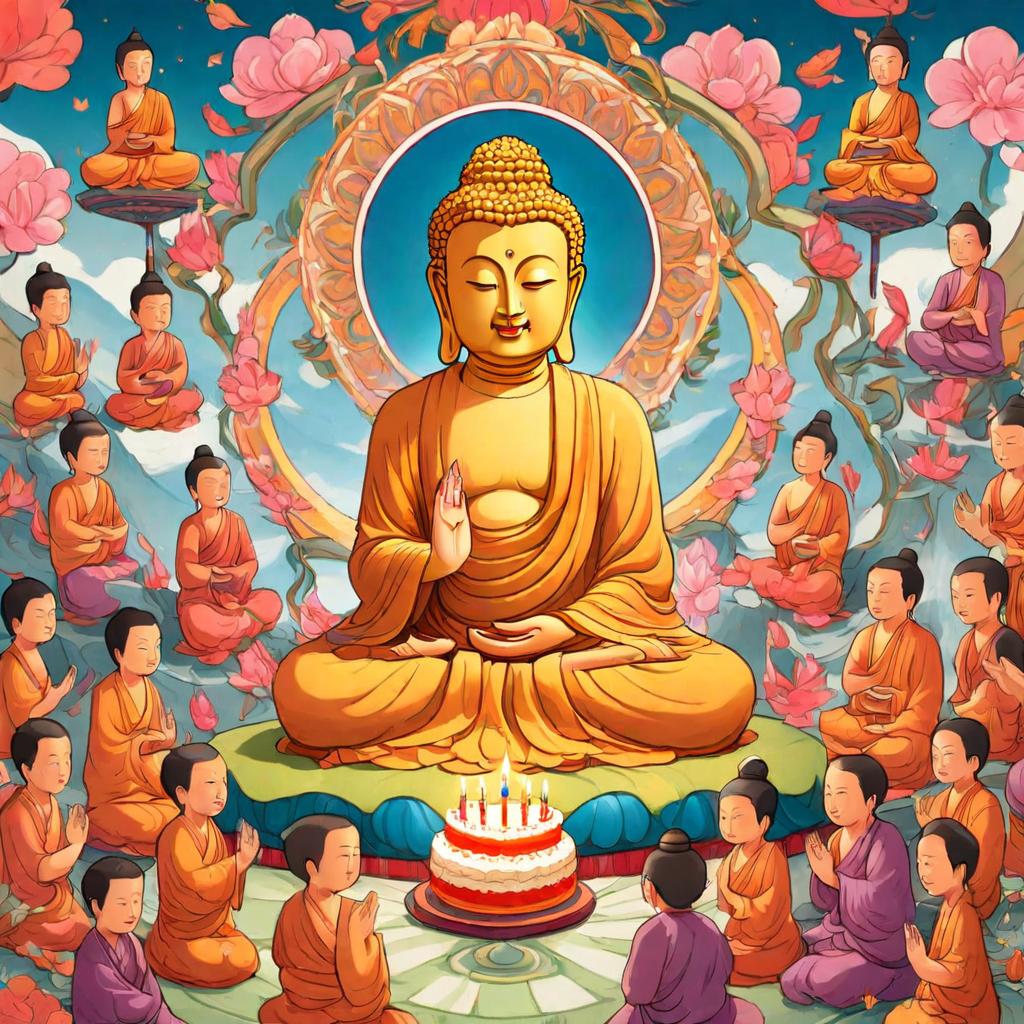Celebrating Buddha’s Birthday: Traditions, Rituals, and Global Observances
Buddha’s Birthday, also known as Vesak or Buddha Purnima, is a significant and sacred event in the Buddhist calendar. This day commemorates the birth, enlightenment, and death of Siddhartha Gautama, the founder of Buddhism. Celebrated by millions of Buddhists around the world, Buddha’s Birthday is a time for reflection, meditation, and community. In this comprehensive guide, we explore the history, traditions, and global celebrations of this important day.
What Is Buddha’s Birthday?
Buddha’s Birthday is a festival that celebrates the birth of Siddhartha Gautama, who later became known as the Buddha. He is believed to have been born around 563 BCE in Lumbini, which is in present-day Nepal. The day also marks his enlightenment at the age of 35 and his death at the age of 80, which are all celebrated simultaneously in many traditions.
Buddha’s Birthday falls on different dates depending on the lunar calendar, but it typically occurs in April or May. In some cultures, it is also celebrated in June. The festival is known by various names, including Vesak, Visakha, and Buddha Purnima, reflecting the diverse ways it is observed across different countries and traditions.
The Significance of Buddha’s Birthday
A Day of Enlightenment
Buddha’s Birthday is not only a celebration of the Buddha’s birth but also his enlightenment and death. These three events are significant as they represent the key stages of his life and teachings. Enlightenment, in particular, is celebrated as the moment when Siddhartha Gautama achieved profound insight into the nature of suffering and the path to its cessation, known as Nirvana.
Reflecting on Teachings
The day provides an opportunity for Buddhists to reflect on the Buddha’s teachings, known as the Dharma. These teachings emphasize the Four Noble Truths and the Eightfold Path, guiding principles for leading a life of ethical conduct, mental discipline, and wisdom.
Acts of Compassion
Buddha’s Birthday is also a time for acts of compassion and charity. Followers often engage in various forms of giving, such as donating food, clothes, and other necessities to the less fortunate. This practice embodies the Buddha’s teachings on compassion and selflessness.
How Is Buddha’s Birthday Celebrated?
Rituals and Ceremonies
Buddha’s Birthday is marked by a variety of rituals and ceremonies. Temples and monasteries are often decorated with flowers, lanterns, and flags. Devotees gather to participate in prayer sessions, chanting, and meditation. One of the most common practices is the bathing of the Buddha statue, symbolizing the purification of the mind and soul.
Offerings and Almsgiving
Making offerings to the Buddha and monks is a central aspect of the celebrations. These offerings typically include flowers, incense, and food. Almsgiving, or the donation of food and other essentials to monks and the needy, is also a significant part of the festivities.
Vegetarian Feasts
Many Buddhists observe a vegetarian diet on Buddha’s Birthday as a mark of respect for all living beings. Special vegetarian meals are prepared and shared with family and community members, emphasizing the values of harmony and compassion.
Global Celebrations of Buddha’s Birthday
Vesak in Sri Lanka
In Sri Lanka, Vesak is one of the most important festivals. Celebrations last for a week and include the display of Vesak lanterns and lights, processions, and the distribution of free meals known as ‘Dansalas’. Temples host special programs of worship, meditation, and Dharma talks.
Hanamatsuri in Japan
In Japan, Buddha’s Birthday is known as Hanamatsuri or the Flower Festival, celebrated on April 8th. Temples are adorned with cherry blossoms and flowers, and a special ceremony known as ‘Kanbutsu-e’ involves pouring sweet tea over a statue of the infant Buddha.
Buddha Purnima in India
In India, Buddha Purnima is celebrated with great reverence, particularly in regions with significant Buddhist populations such as Bihar, Uttar Pradesh, and Ladakh. Pilgrims visit important Buddhist sites like Bodh Gaya, Sarnath, and Kushinagar to offer prayers and participate in various rituals.
Seokga Tansinil in South Korea
In South Korea, Buddha’s Birthday is called Seokga Tansinil and is celebrated on the eighth day of the fourth lunar month. Temples hold special ceremonies, and streets are often lined with lanterns. A highlight of the celebrations is the Lotus Lantern Festival, where thousands of lanterns are lit to symbolize the light of wisdom.
Vesak in Southeast Asia
In countries like Thailand, Cambodia, and Myanmar, Vesak is a public holiday. Celebrations include temple visits, processions, and the release of birds and animals as acts of merit. In Thailand, the day is also marked by the presentation of robes to monks, a practice known as ‘Kathina’.
The Spiritual Impact of Buddha’s Birthday
Personal Reflection and Growth
Buddha’s Birthday is a time for personal reflection and growth. Followers take this opportunity to meditate on the Buddha’s teachings and assess how well they are incorporating these principles into their daily lives. This introspection helps in fostering a deeper understanding of the Dharma and encourages spiritual development.
Community and Connection
The celebrations foster a sense of community and connection among Buddhists worldwide. The collective participation in rituals and ceremonies strengthens communal bonds and reinforces shared values of compassion, wisdom, and ethical living.
Spreading the Message of Peace
Through the various activities and teachings associated with Buddha’s Birthday, the message of peace and non-violence is spread far and wide. This day serves as a reminder of the Buddha’s message of universal love and compassion, encouraging people to live harmoniously and contribute positively to society.
FAQs About Buddha’s Birthday
Why is Buddha’s Birthday important?
Buddha’s Birthday is important because it commemorates the birth, enlightenment, and death of Siddhartha Gautama, the Buddha. It is a time for Buddhists to reflect on his teachings, engage in acts of compassion, and celebrate their spiritual heritage.
How do Buddhists celebrate Buddha’s Birthday?
Buddhists celebrate Buddha’s Birthday with rituals, ceremonies, offerings, and almsgiving. Temples are decorated, and devotees participate in prayer, meditation, and chanting. Acts of charity and vegetarian feasts are also common.
When is Buddha’s Birthday celebrated?
Buddha’s Birthday is celebrated on different dates depending on the lunar calendar, typically in April or May. In some cultures, it is also observed in June. The specific date varies across different Buddhist traditions.
What are some unique traditions of Buddha’s Birthday?
Unique traditions include the bathing of the Buddha statue, the display of Vesak lanterns in Sri Lanka, the Flower Festival in Japan, and the Lotus Lantern Festival in South Korea. Each culture has its own distinct ways of honoring the Buddha.
Can non-Buddhists participate in Buddha’s Birthday celebrations?
Yes, non-Buddhists are welcome to participate in Buddha’s Birthday celebrations. Many temples and communities encourage people of all backgrounds to join in the rituals, learn about Buddhism, and partake in the communal activities.


 admin
admin